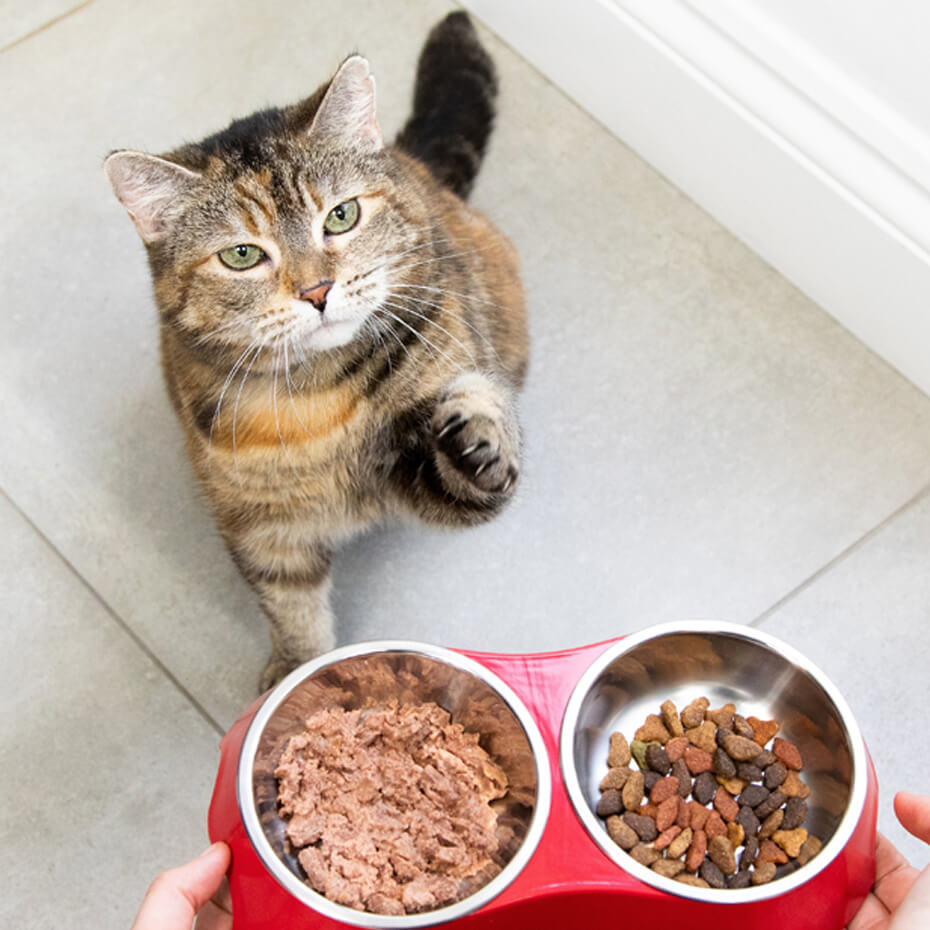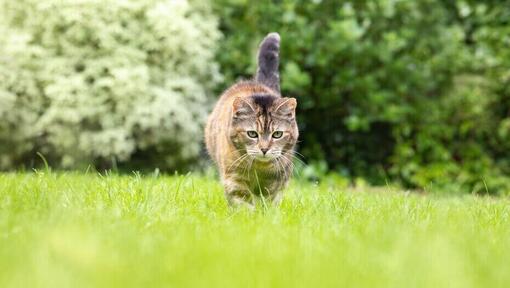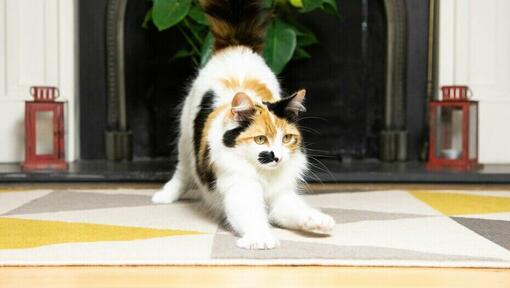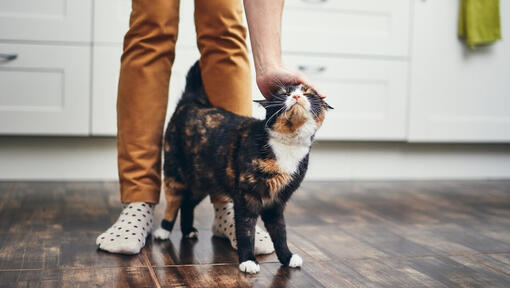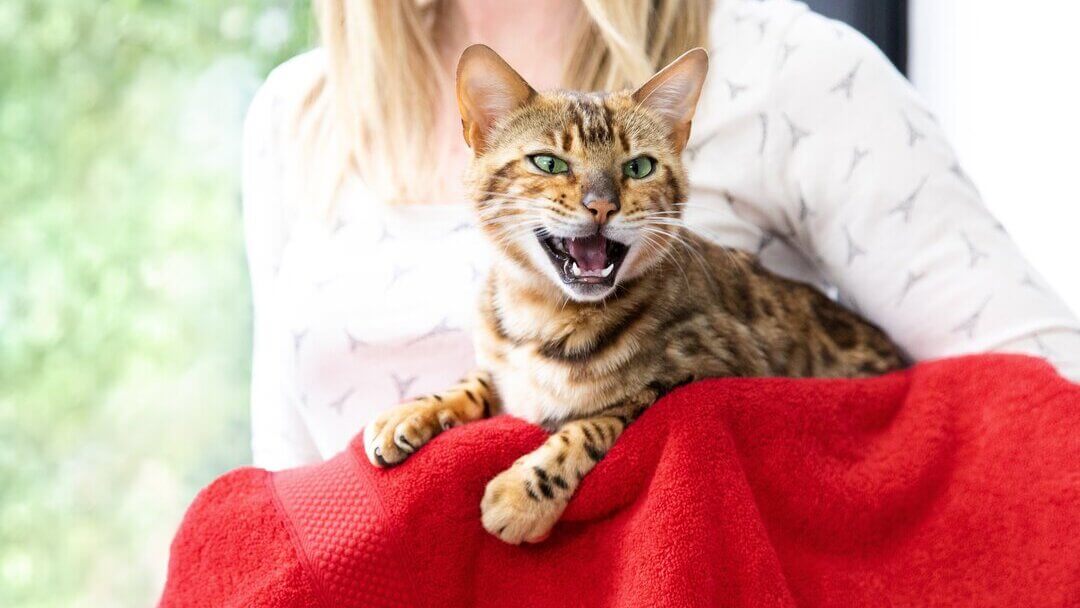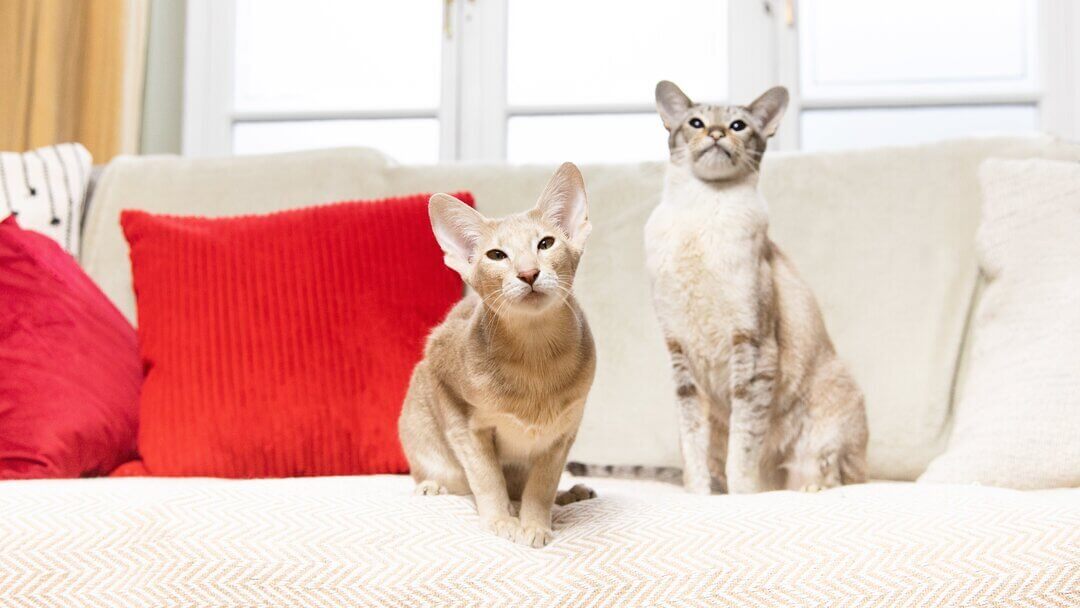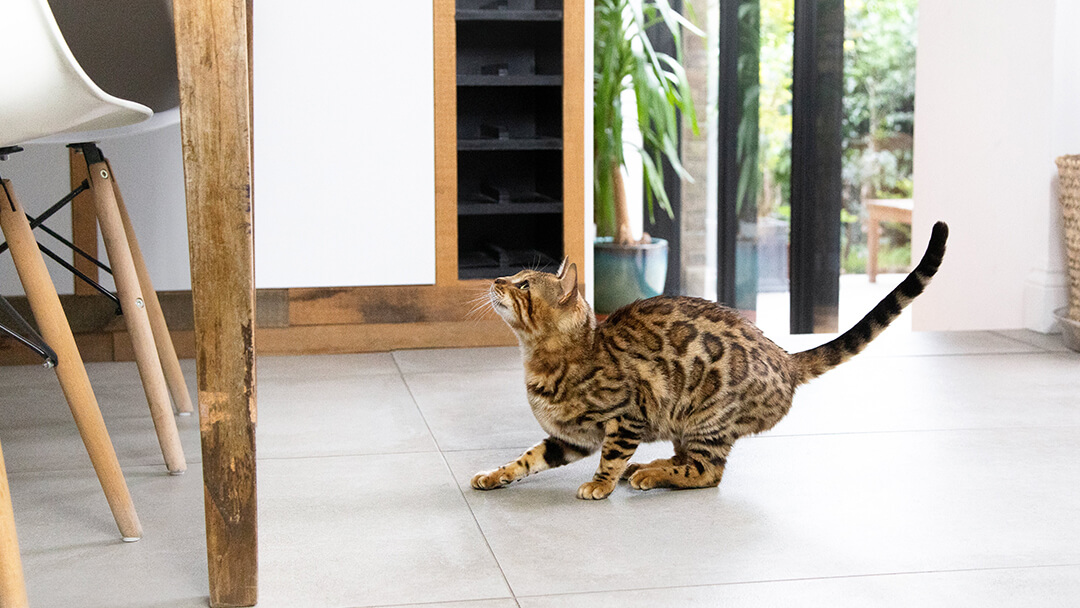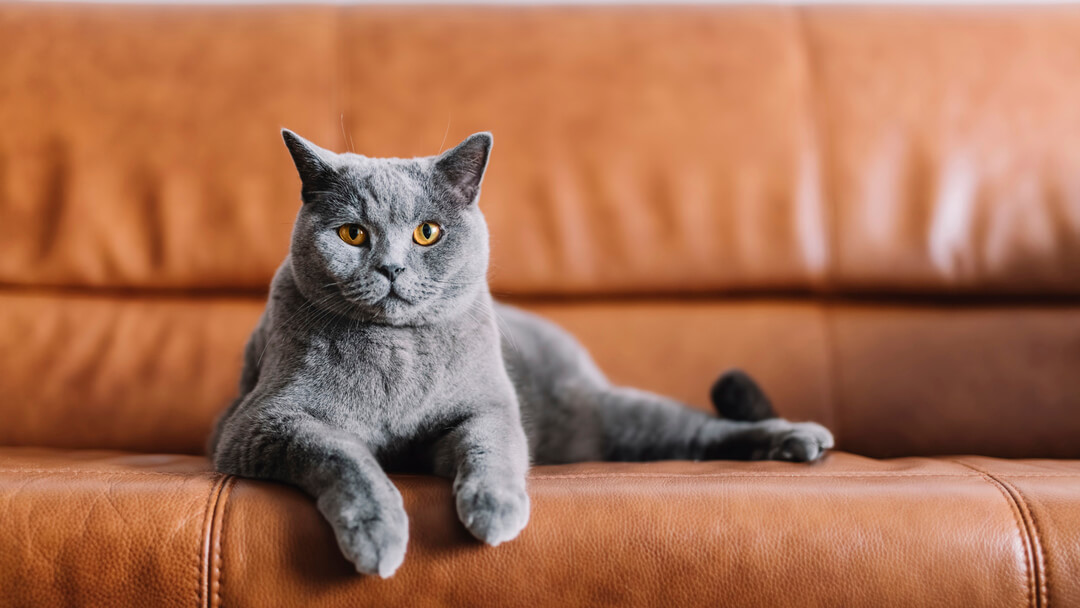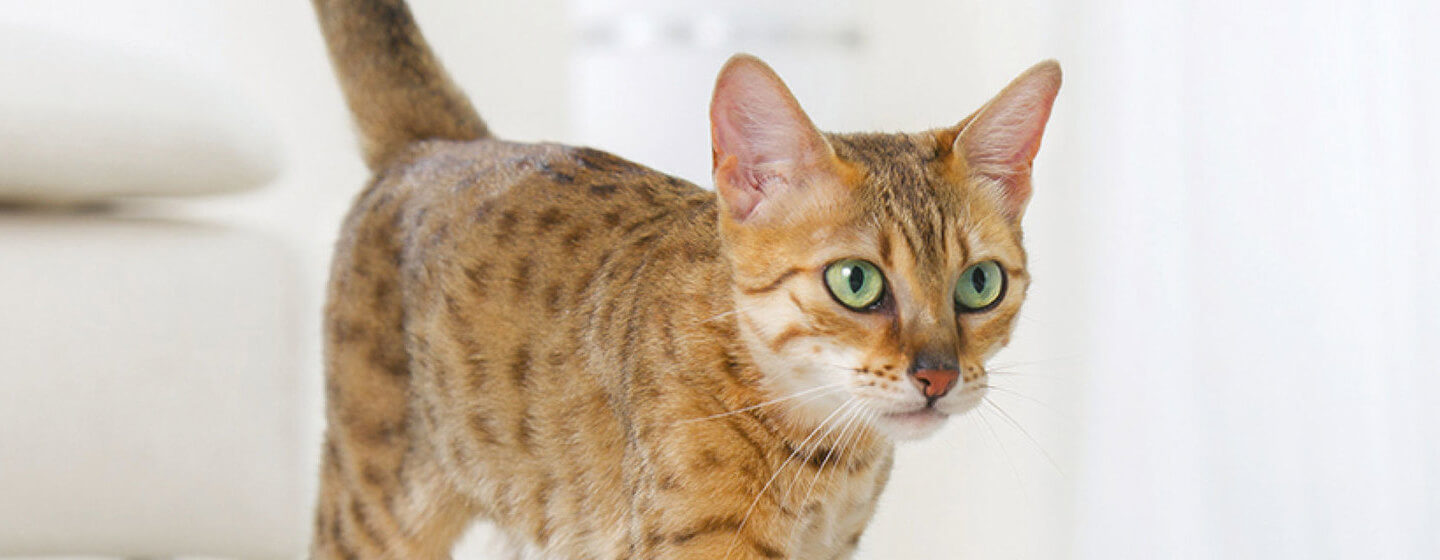
Cats make wonderful pets, and whilst most of their behaviour makes us laugh and smile, some of their actions can seem confusing and sometimes even a little anti-social!
For example, cats spray urine, which can seem unpleasant if it happens inside your home. If this is an issue, the best way to tackle this issue is to understand your cat’s behaviour, then address the cause.
Cat Marking
Territory is very important to cats, especially their home, where they like to feel safe and secure. After all, home is where their friends live, their toys are and they’re fed – no wonder they want it all to themselves! Cats ‘mark’ their territory when they’re content using glands on their cheeks, above their eyes and over their chin.
When you see them happily gently rubbing themselves on your legs or on furniture, they are leaving their mark on a place where they feel the most comfortable. As we can barely smell the scent they leave behind and marking doesn’t cause problems, we don’t tend to worry about it. You can take cat marking as a positive sign that you have created a loving home that makes your cat very happy.
Why do cats spray?
Spraying is another type of marking which is mainly used outdoors, where there’s more competition with other cats. Instead of rubbing their faces to mark their territory, cats spray urine, which carries their own individual scent.
Cats spraying outdoors
Cats sometimes spray urine up against trees, hedges and fence posts when they’re outdoors.
They do this at nose height for other cats that might be passing by. This spray contains information about your cat’s age, sex, health, activity and where the boundaries of their territory are – so it’s like their personal cat calling-card!
Marking their territory like this aims to inform other cats in the area that this is their patch, to avoid any confusion and help prevent physical confrontation.
Cats spraying in house
When cat spraying takes place outdoors, it’s not really a problem - in fact, it’s completely natural. However, if your cat starts to spray in your home, it’s usually a sign they’re anxious about something and there may be a reason they’re keener than ever to mark their territory.
Cats that spray doorframes, curtains and window ledges may feel threatened by something that they may have seen outside. If your cat starts spraying chair legs, beds and dressing tables, it could be a sign that they’re feeling a little insecure, so are surrounding themselves with more of their own scent to increase their confidence.
If your cat has started to spray indoors, and you’re not sure why, talk to your vet to identify possible reasons why and ways to get them back to the happy cat who marked with loving face rubs instead. Your vet will be able to give you advice on how to prevent cat spraying, and may refer you to a cat behaviourist who’ll be able to help you work out what has caused your cat’s behaviour to change.
How to stop cats spraying
As spraying indoors signals that your cat is already feeling threatened, the last thing you want to do is frighten them by telling them off. If you shout at them for spraying, it can increase their stress levels, making them spray even more - which is certainly not what you want for your cat or your home!
If you’re wondering how to stop cats spraying, the first step is to think about what could be causing them stress. For example, is there a new cat in the neighbourhood or has your home undergone a change? One of the following points could be the cause:
- Your cat may feel intimidated if there are lots of cats in the area. If your neighbourhood is has lots of other cats, make sure you have a secure cat flap (magnetic or microchip activated) that stops them coming into your – and your cat’s – home. If you spot any repeat offenders trying to sneak their way in, try to shoo them away to discourage them from coming into your cat’s personal space.
- Have you recently gained or lost another cat? Make sure your existing cat still feels secure, and knows that everything such as their food, water, litter tray, bed and toys are still readily available and won’t be taken over by your new arrival or removed after the passing of your other pet. You may need to put their special things in more than one location to reassure them. Discover more tips on welcoming home a new cat.
- Have you got new furniture, redecorated or completely moved house? All of these things can unsettle your cat and increase the chance of cat spraying, so slowly introduce them to new additions and give them time to adjust. You can also try gently rubbing a soft cloth on your cat’s face to pick up their natural pheromones and wipe new furniture or unfamiliar areas with the cloth at cat height. This will spread their scent and help them feel more secure in their surroundings.
- Ask your vet about synthetic feline pheromones which can be used in a similar manner, and which can be useful when dealing with stress-related problems.
What are the medical causes for cat spraying?
Some cats spray indoors because they have a medical problem, so if your cat is spraying indoors, take them to your vet to have them checked over. For example, Feline Lower Urinary Tract Disease (FLUTD) is a common, treatable condition which can be potentially life threatening if ignored. It usually causes blockage or partial blockage of the urinary tract, which makes urinating difficult or almost impossible.
The causes and treatments for FLUTD are very different to spraying, so it’s a good idea to speak to your vet if you think their spraying may have a medical, rather than emotional, cause.
Cleaning cat spray
Cats will often spray the same area time and time again so, if you spot a pattern, test the colour-fastness of the area, then clean the area thoroughly with a 10% solution of biological washing powder, rinse with cold water and allow it to dry. After this, spray with alcohol (available from your vet or pharmacy) and allow it to dry again. You should now have a clean, smell-free area!
Disclaimer: Cat owners in New Zealand are encouraged to keep their cats at home and prevent them from free roaming for safety reasons.

